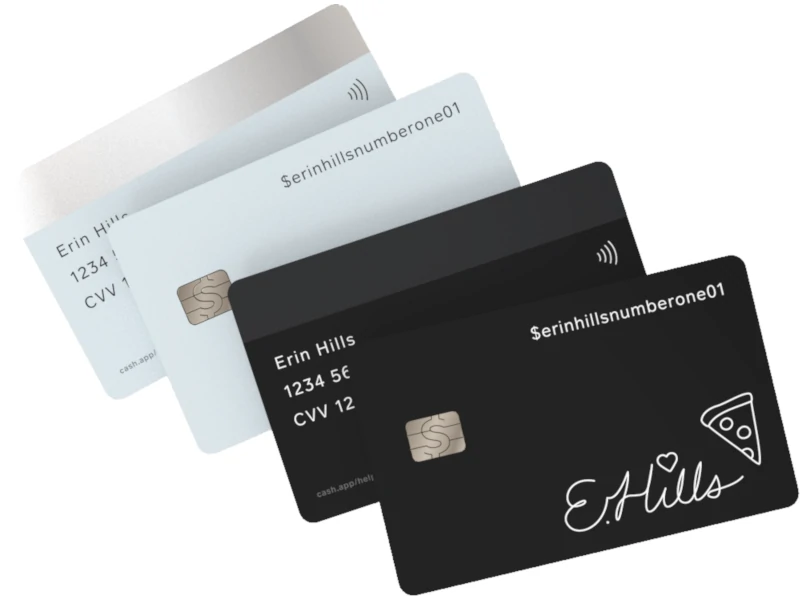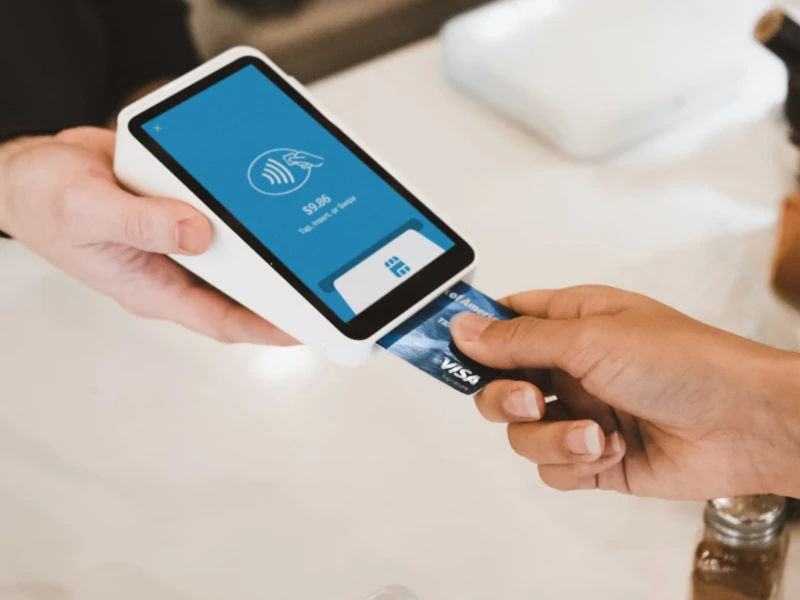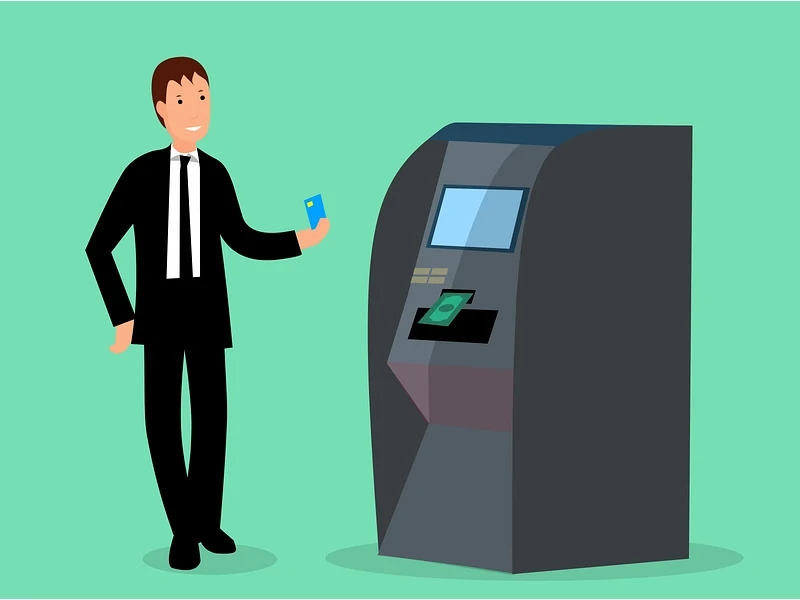What Percentage Does Cash App TAKE? Charges & Fees
Cash App allows you to transfer and receive money and acquire a Cash Card for in-person and online purchases, as well as direct deposits to your account.
Despite the benefits, what percentage does Cash App take for its services?
Sending or receiving money using Cash App is free, but there are other costs such as for ATM withdrawals, Immediate Transfers, loading your card, and more.
Continue reading to learn about specific fees and charges.
Does Cash App Charge Fees?

Many Cash App interactions between users are free.
However, in other cases, you may be charged a modest charge for a transaction.
Standard Cash App account users will be charged for certain transactions, while users with Cash App business accounts have limitless transactions and some exemptions.
Here is the detailed fee structure for both types of accounts:
Cash App Fees for Standard Accounts
Sending and receiving money with Cash App is entirely free for standard accounts.
However, Cash App charges a fee for immediate transfers (0.5% to 1.75% of the transfer amount, with a minimum fee of $0.25).
To avoid this fee, you can also pick a no-fee standard transfer, which takes 1-3 business days.
In addition, when you use a credit card to make a payment on Cash App, it charges a 3% fee.
The video below goes into more detail about the 3 ways you can request and receive money using Cash App:
Cash App Fees for Business Accounts
You can accept an infinite number of payments of any amount with Cash App for Business using your $Cashtag, email, or Cash.app account.
Business accounts do not have any account restrictions.
However, using a Cash App for a Business account to accept payments will incur a 2.5% per transaction cost.
Customers of Cash for Business also pay a 2.75% cost for accepting credit cards, which is a bit lower when compared to the 3% fee for non-business Cash App users.
Furthermore, customers of Cash for Business are also entitled to free instant deposits.
Read our related article on How to Make a Business Account On Cash App. Startups and veteran businesses alike can benefit from a Cash App Business Account. Here’s how to get one!
Cash App Fees for ATM Withdrawal

Cash App charges a fee that can range between $2 and $2.50 for every ATM withdrawal you make with your Cash Card.
The good news is that Cash App will repay up to $7 in ATM withdrawal costs, up to 3 times every 31 days if you receive $300 or more in qualified direct deposits each month.
NOTE: Most ATMs may charge you an additional fee if you use a card from a different bank.
Read our related article on the Cash App Withdrawal Limit to learn how much you can withdraw per day, per week, and per month!
Cash App Investing Fees
There are no costs associated with starting a Cash App investment account.
It also does not charge commissions or force you to keep a minimum amount in your account.
Certain government agencies, however, may levy fees for any transactions you make, which will be revealed to you before the trade is confirmed.
Read our related article where we explore the Cheapest Stocks On Cash App!
Are the Fees You Pay Worth It?
There are no costs for using Cash App’s basic services.
That is, it doesn’t impose monthly, inactivity, or international transaction costs to send or receive money.
If you set up direct deposit, you will receive free ATM withdrawals.
Otherwise, using an ATM with your Cash Card will cost between $2 – $2.50 per ATM transaction.
The “Cash Card” is a free debit card that lets users make purchases and withdraw funds from their Cash App account.
Users with the Cash Card can also select a specific “boost” on their account to save money on purchases.
These boosts allow you to save money on a specific vendor’s purchase (for example, 10% off an order with DoorDash).
Only one boost can be active at a time, but you can switch between them as frequently as you wish.
Cash App will also pay you a $5 cash incentive when your friends join using your referral code.
If you give a referral code to a friend and they join up for Cash App using your link, you will earn an incentive.
Learn how to add people on Cash App and earn your $5 using our quick step-by-step guide!
How to Avoid Cash App Fees

While using Cash App and its related Cash Card is free, you will face a few fees as you start using the app.
Fortunately, some of these fees are avoidable.
Don’t Use a Credit Card With Cash App
Cash App charges a 3% fee when sending money with a credit card while making payments using a debit card or bank account is free.
Avoid Using Instant Deposit
If you request an Instant Deposit of funds from your Cash App account to your associated debit card, you will be charged an additional 0.5% -1.75% fee.
If you can wait 1-3 business days for your transaction to be processed, transferring money to a bank account using the standard method is free.
Use ATMs Only for Emergencies
Any ATM may accept Cash Cards, but a $2 to $2.50 fee will be charged by Cash App.
Read More: How to Order a Cash App Card. Get your customizable Cash Card by following these easy steps!
Cash App vs Other Payment App Fee Comparison
Cash App and its rivals use similar fee plans for their core services, such as sending and receiving money.
However, each app’s transfer limits and payment options may vary slightly.
The table below provides a brief comparison of different applications.
| Fees | Cash App | Venmo | Apple Cash | Google Pay | PayPal | Zelle |
|---|---|---|---|---|---|---|
| Sending Money | No fee | No fee | No fee | No fee | No fee | No fee |
| Sending money using debit or credit card | No fee for debit. 3% with credit card. | No fee for debit. 3% with credit card. | No fee for debit. Can’t use credit cards. | No fee for debit. 2.9% with credit card. | 2.9% fee for debit and credit. | No fee for debit. Can’t use credit cards. |
| Standard transfer | Free | Free | Free | Free | Free | Free |
| Instant Transfer | 0.5%-1.75% | 1.75% | 1.5% | 1.5% | 1% | Free |
| ATM Withdrawal | $2 fee | $2.50 fee | Not Available. Only works on contactless ATM. | Not Available. Only works on contactless ATM. | $2.50 fee | Not Available |
Does Cash App Take Money When You Receive Money?
Cash App does not take any money for receiving money from your peers.
It’s a scam if someone asks for money, such as receiving fees or a Cash App clearance fee.
FAQs
What Percentage Does Cash App Take?
When transferring money to a bank account, you can pick a no-fee regular transfer, taking 1-3 business days to complete, or an immediate transfer, which costs 0.5% to 1.75%, with a minimum of $0.25.
Cash App also assesses a 3% fee for credit card payments made using the app.
How Much Does Cash App Take Out of $100?
If you receive $100, there are no costs that you have to pay.
It’s also cost-free if you send money using a connected debit card or bank account.
As noted above, there is a 3% fee if you send money using a credit card.
So, if you use a credit card to send someone $100, you would actually pay $103 in exchange for $100.
How Much Does Cash App Charge for $200?
You don’t have to pay any fees if you receive $200, and if you are sending $200 using your linked bank account or debit card, it’s free.
Just like our $100 example, if you use a credit card to send the money, you must pay a 3% fee.
That means for sending $200, you would have to pay $206.
